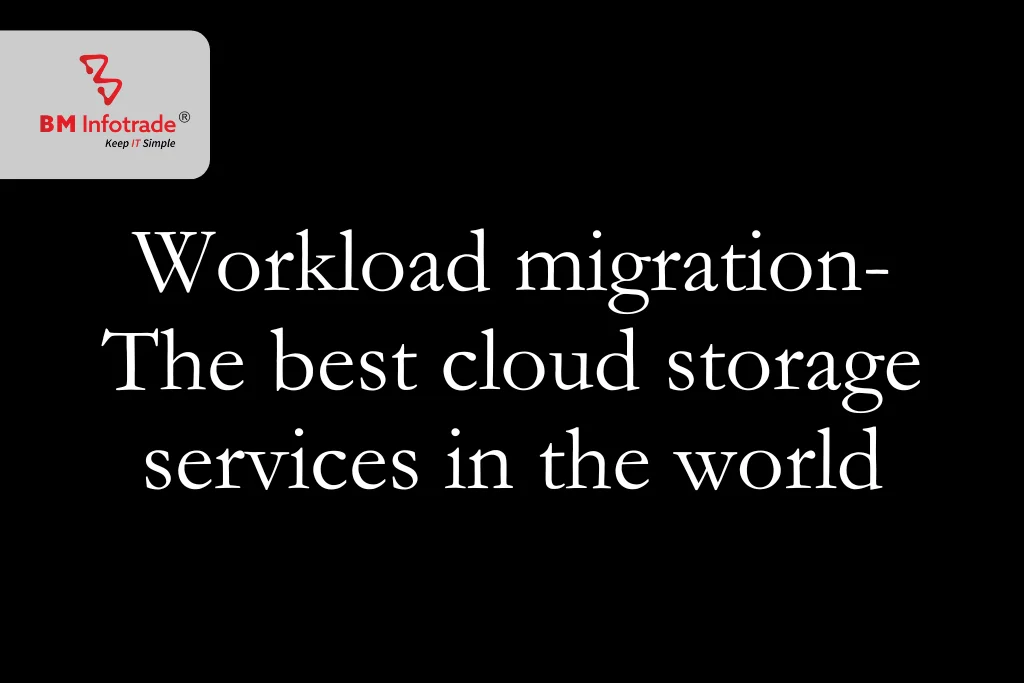AWS vs Azure: Which Cloud Platform is Best for Your Business Workloads in 2025? – Expert Comparison and Insights
Choosing between AWS and Azure in 2025? This expert comparison highlights key features, pricing, and use cases to help you pick the best cloud platform for your business workloads—whether you need global reach, Microsoft integration, or advanced AI tools.

AWS vs Azure: Which Cloud Platform is Best for Your Business Workloads in 2025? – Expert Comparison and Insights
Table of Contents
- Market Position and Adoption in 2025
- Core Infrastructure and Global Reach
- Compute and Storage Services
- Networking and Security
- AI, Machine Learning & Data Analytics
- Hybrid Cloud and Multi-Cloud Readiness
- Pricing and Cost Optimization
- Developer Ecosystem and Tools
- Customer Support and Training
- Conclusion
- FAQ's
As cloud computing rises in popularity and becomes an integral part of most companies’ IT strategies, selecting a platform for your workloads has become more important than ever. In 2025, Amazon Web Services (AWS) and Microsoft Azure continue to lead the pack as the top two cloud platforms. Both have strong ecosystems, global presence, and a growing list of services. The actual query, however, is which of these is a better fit for your organisational needs—your specific workloads and prospects for expansion.
In this article, we analyse the specific advantages and disadvantages of AWS and Azure to assist you in making the right choice for your company.
Market Position and Adoption in 2025
AWS continues to maintain its top cloud infrastructure provider position in 2025, having nearly been tailgated by Microsoft Azure. The last estimates indicate:
-
With a commanding mark of 31% share of the market, AWS competes with other providers in the cloud ecosystem.
-
Azure, with its enterprise cybersecurity business and governmental contract, remains afloat and maintains its 26% share.
This shift marks the Azure accomplishment within the enterprise context, while AWS is still the best option for startups, new developers or those building modular global systems.
Core Infrastructure and Global Reach
AWS and Azure both have data centres located in multiple parts of the world, but there are differences in scale and method that need to be taken into consideration:
-
As of 2025, AWS has 102 Availability Zones and operates in 32 regions, intending to expand into Africa and Southeast Asia.
-
Competitor Azure still has the biggest worldwide infrastructure footprint of all cloud providers, with over 60 regions.
Azure likely has the most advantage if your workloads are stringent about low-latency data delivery and regulatory compliance across multiple countries due to its greater local coverage.
Compute and Storage Services
AWS Compute (EC2, Lambda) vs Azure Compute (VMs, Functions)
-
AWS EC2 continues to offer the widest variety of instance types, ideal for custom configurations and high-performance computing (HPC).
-
Azure Virtual Machines are more tightly integrated with Windows workloads and offer better licensing deals for Microsoft products.
For serverless computing:
-
AWS Lambda is known for its mature ecosystem and broader language support.
-
Azure Functions, while comparable, benefits from native integration with Visual Studio, Azure DevOps, and GitHub.
Storage Services
-
AWS S3 remains the gold standard for object storage — simple, scalable, and integrated with nearly every AWS service.
-
Azure Blob Storage is equally reliable, but Azure takes the lead in hybrid storage scenarios through Azure Stack and Azure Arc.
If your workloads involve media files, backups, big data, or unstructured data, both platforms deliver at scale, but AWS has a slight edge in ecosystem maturity.
Networking and Security
Networking
-
AWS offers Virtual Private Cloud (VPC), Direct Connect, and advanced routing configurations that appeal to complex architectures.
-
Azure provides Virtual Network (VNet) and ExpressRoute, which integrate more seamlessly with on-premise Microsoft ecosystems.
Azure’s edge comes from its hybrid cloud-first approach, making it ideal for enterprises undergoing phased migration.
Security and Compliance
Both platforms are heavily invested in security, offering encryption, identity and access management (IAM), DDoS protection, and compliance with industry standards like ISO, SOC, HIPAA, and GDPR.
-
AWS has a more fine-grained IAM system and is often preferred by security teams with DevSecOps frameworks.
-
Azure integrates Azure Active Directory (AAD) across all its services, which is a huge plus for businesses already using Microsoft 365 and Windows Server.

AI, Machine Learning & Data Analytics
In 2025, AI and data-driven operations are at the core of digital transformation, and both AWS and Azure have doubled down on innovation.
-
AWS offers SageMaker for machine learning, Redshift for data warehousing, and Athena for serverless queries.
-
Azure delivers Azure Machine Learning, Synapse Analytics, and Power BI for visual analytics and business intelligence.
For organisations already invested in Microsoft products, Azure’s AI/ML stack provides better integration and user experience. However, AWS has a slight advantage in developer-focused tools and ML experimentation.
Also Read:- AWS vs Azure vs GCP: Which Cloud Platform Is Best for Your Workload in 2025?
Hybrid Cloud and Multi-Cloud Readiness
Enterprises in 2025 are moving toward multi-cloud and hybrid environments to avoid vendor lock-in and improve resilience.
-
Azure leads in hybrid cloud through its Azure Arc and Azure Stack Hub, allowing seamless control across on-premise, edge, and public cloud.
-
AWS offers Outposts and Local Zones, but these are more limited in deployment and come with stricter hardware dependencies.
If your business model depends on a mix of cloud and on-premise resources, Azure’s hybrid flexibility is a clear winner.
Pricing and Cost Optimization
Pricing is a critical factor in cloud adoption and ongoing usage.
-
AWS pricing is modular and offers spot instances, savings plans, and reserved instances for cost control. However, it can become complicated without expert guidance.
-
Azure provides pay-as-you-go pricing, with deep discounts for Microsoft Enterprise Agreement customers and Azure Hybrid Benefit for Windows workloads.
In 2025, Azure is considered more budget-friendly for businesses already in the Microsoft ecosystem, while AWS offers better flexibility for unpredictable workloads.
Developer Ecosystem and Tools
-
AWS has a broader range of SDKs, CLI tools, and developer-friendly APIs.
-
Azure integrates tightly with Visual Studio, GitHub Actions, and DevOps Pipelines — great for CI/CD workflows in Microsoft environments.
If you’re building modern apps in Node.js, Python, or Go with microservices and containerization, AWS may offer better agility. But for .NET developers, Azure is the natural fit.
Customer Support and Training
Both AWS and Azure offer extensive support tiers, certifications, and documentation. However:
-
AWS Certification paths are more recognised globally in the startup and innovation sectors.
-
Azure Certifications are increasingly adopted in enterprise IT departments and government sectors.
The choice of training should align with your team’s existing skills and long-term cloud strategy.
Also Read:- 2025 AWS Pricing and Features Breakdown: What’s New, What to Expect, and How to Optimize Globally
Conclusion
In 2025, both AWS and Azure offer powerful cloud solutions, but the right choice depends on your specific workload needs. AWS excels in flexibility, performance, and developer tools, while Azure shines in enterprise integration, hybrid capabilities, and cost efficiency for Microsoft-based environments. Choose the one that aligns best with your business goals—or consider a multi-cloud approach for maximum advantage.
FAQ's
1. Which cloud platform is better for hybrid cloud solutions in 2025: AWS or Azure?
Azure is generally considered the best choice for hybrid cloud environments, especially for organizations using Microsoft products or needing seamless integration with on-premises infrastructure. Azure offers advanced hybrid services like Azure Arc, making it ideal for businesses with diverse IT needs.
2. What are the main differences in pricing between AWS and Azure in 2025?
AWS uses a flexible, pay-as-you-go model with cost-saving options like Reserved and Spot Instances. Azure is often more cost-effective for Microsoft-centric businesses, offering hybrid benefits and transparent pricing tools. Both platforms allow you to pay only for what you use, but their discount structures and licensing options differ.
3. Which cloud platform offers better AI and machine learning capabilities in 2025?
Both AWS and Azure provide robust AI and machine learning services. AWS SageMaker is widely used for building, training, and deploying ML models, while Azure AI and Cognitive Services offer ready-to-use APIs for vision, speech, and language processing. The best choice depends on your specific AI strategy and integration needs.
4. How do AWS and Azure compare in terms of global data center availability in 2025?
Azure leads with 60+ cloud regions, offering the broadest global coverage for local access and regulatory compliance. AWS has over 30 regions and 99+ Availability Zones, providing strong global scalability and reliability for enterprises needing worldwide reach.
5. Can businesses use both AWS and Azure together in 2025?
Yes, many organizations adopt a multi-cloud strategy, using AWS for certain workloads and Azure for others. This approach provides flexibility, reduces vendor lock-in, and allows businesses to leverage the strengths of both platforms for different needs.







Anshul Goyal
Group BDM at B M Infotrade | 11+ years Experience | Business Consultancy | Providing solutions in Cyber Security, Data Analytics, Cloud Computing, Digitization, Data and AI | IT Sales Leader